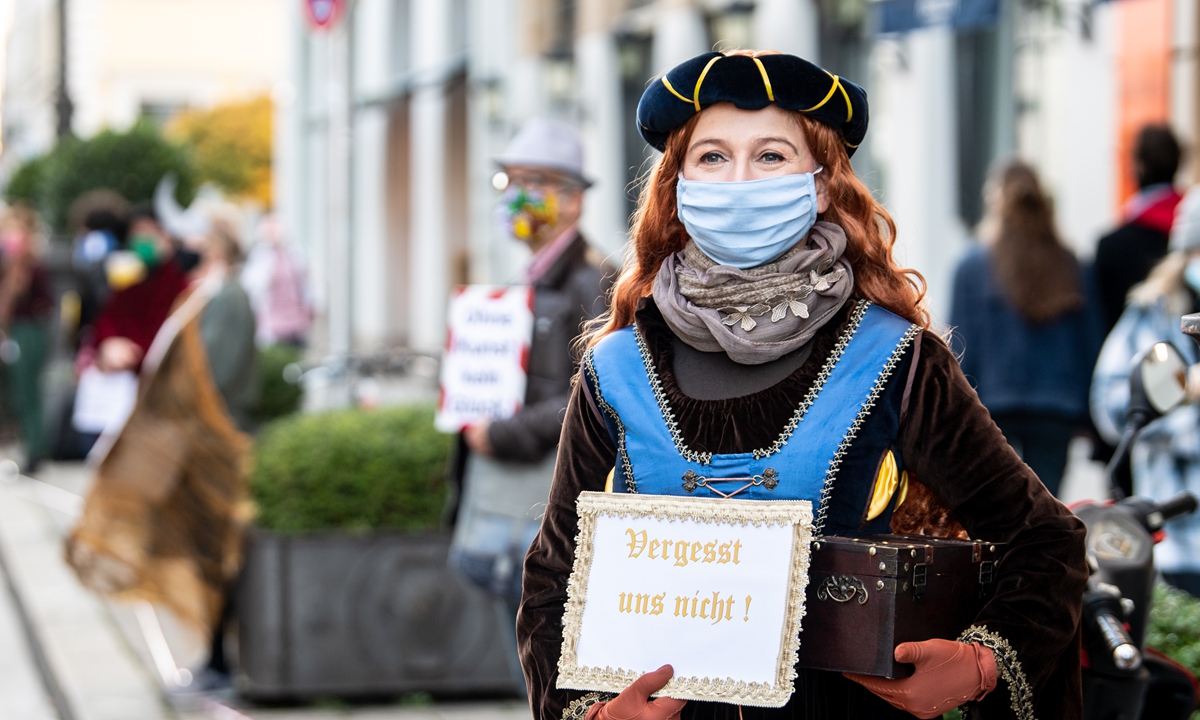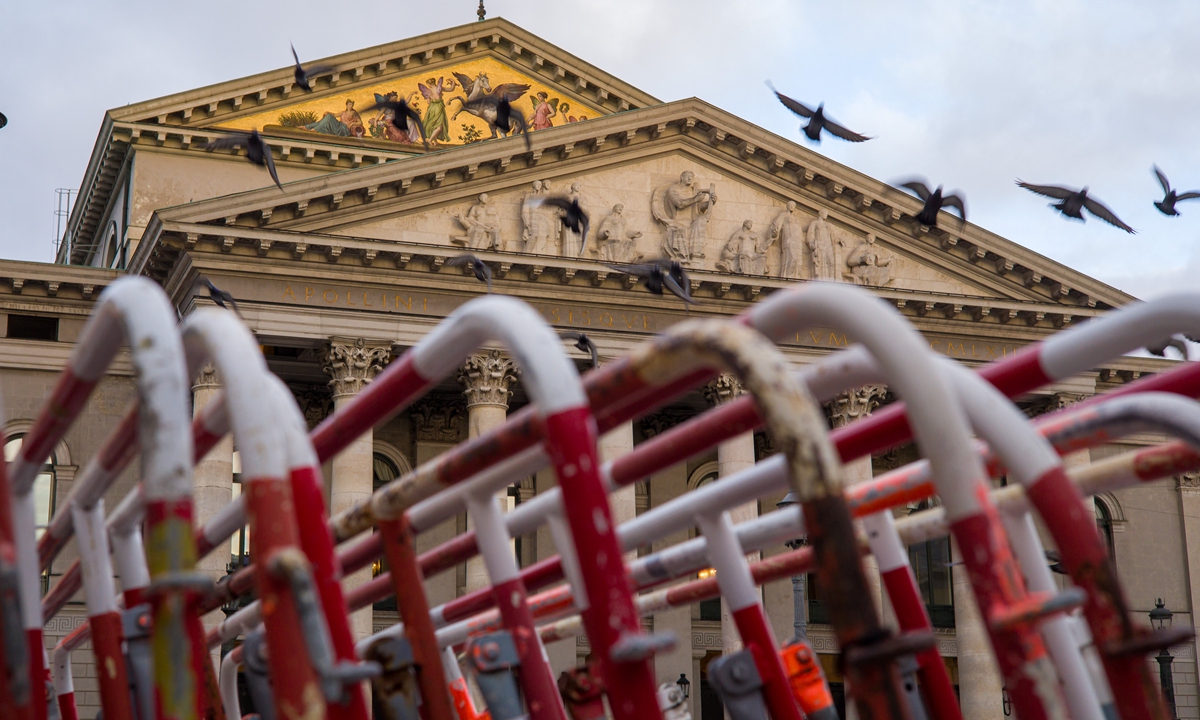Coronavirus shutdown a ‘slap’ for German cultural world
Source: AFP Published: 2020/11/2 16:58:41

Sabine, an actress at the Bavarian State Opera, stands in a human chain with a sign saying "Don't forget us!" on Saturday. Photo: AFP

The Bavarian State Opera Photo: AFP
As curtains were about to close at the renowned Bavarian State Opera house, baritone Michael Nagy was unable to hide his tears over the imminent coronavirus shutdown ordered by the German government to fight surging infections.Speaking to AFP on Saturday night during the interval mid-way through his performance, the 43-year-old called the tough curbs that will hit the leisure, cultural and food and drink sectors from Monday until the end of November "a slap."
The pill was particularly bitter to swallow for the Munich-based opera, which had been holding performances in the cavernous concert hall for 500 spectators over October - and claims no infections have been traced to its concerts.
Director Nikolaus Bachler, 69, said he did not understand why public transport and shops were able to keep going while the opera had to close.
"We have a disciplined public. It is possible to master the risks. It's not an adequate decision," he told AFP.
His disappointment has been shared by colleagues in the entertainment sector.
In an open letter, German actors, singers and comedians said: "These last months, we have the impression that we are worth less than cars, planes or footballers."
Europe's biggest economy coped relatively well with the first coronavirus wave earlier in 2020 but numbers have risen rapidly in recent weeks, in step with the rest of the continent.
With infection rates hitting new 24-hour records almost daily over the past week, the government has decided that leisure, cultural and food and drink sectors must be shut to halt the surge in contagion.
From Monday, theaters, cinemas, swimming pools and bars must close.
Schools and shops can stay open. Professional sports too but only behind closed doors.
Industries hit by the curbs have hit out at what they feel is uneven treatment.
Museum directors have published a statement lashing out at the decision, saying that their institutions are "educational sites that are important and indispensable for the proper functioning of society."
Culture Minister Monika Gruetters has also expressed deep fears for the sector which employs huge numbers of freelancers.
Even if she voiced understanding for the restrictions, she warned that they are "a real disaster" for the industry.
"It's about the livelihoods of more than 1.5 million people who contribute more than 100 billion euros [$116 billion] to the gross domestic product and who often work as self-employed people," she said.
Baritone Nagy stressed that the artists take the virus very seriously and back all measures necessary to fight it.
But he noted that the past month of shows without contagion had shown that shutting operas down completely might not be necessary.
For him, it was "a great opportunity" to have been able to perform the premiere hours before the new shutdown.
As one of the Bavarian State Opera's final shows before the new curbs, the 50-strong audience clapped with all their might, cheered at the top of their lungs and stamped their feet repeatedly in approval.
Spread out on the red cushioned seats in the hall with elegant balconies that usually seats up to 2,100, spectators were cheering the premiere of the opera The Birds by Walter Braunfels.
"It's completely depressing and painful to be sitting here in a hall that's so empty," said Jan Brachmann, 48, with a bow-tie around his neck and a surgical mask covering his nose and mouth.
The opera afficionado said he wanted however to be at the premiere, out of respect "for the artistes who prepared it."
President Frank-Walter Steinmeier said the coronavirus crisis has demonstrated the importance of cultural life.
"Culture is not a luxury good for a few people, it is a life elixir for us all, for each individual and for society as a whole."
Newspaper headline: Second wave